| Listing 1 - 10 of 72 | << page >> |
Sort by
|
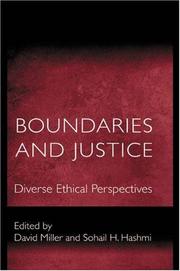
ISBN: 0691088004 0691087997 0691230935 Year: 2001 Publisher: Princeton (N.J.) Princeton University Press
Abstract | Keywords | Export | Availability | Bookmark
 Loading...
Loading...Choose an application
- Reference Manager
- EndNote
- RefWorks (Direct export to RefWorks)
Ethics --- Deontology --- Ethics, Primitive --- Ethology --- Moral philosophy --- Morality --- Morals --- Philosophy, Moral --- Science, Moral --- Philosophy --- Values

ISBN: 0521660610 0521669014 1107085179 1139133950 9786613329493 1139130064 0511040601 0511153503 0511803656 1283329492 0511048564 Year: 2001 Volume: *5 Publisher: Cambridge Cambridge University Press
Abstract | Keywords | Export | Availability | Bookmark
 Loading...
Loading...Choose an application
- Reference Manager
- EndNote
- RefWorks (Direct export to RefWorks)
Ethics --- Deontology --- Ethics, Primitive --- Ethology --- Moral philosophy --- Morality --- Morals --- Philosophy, Moral --- Science, Moral --- Philosophy --- Values --- Early works to 1800
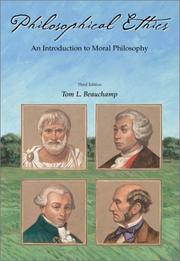
ISBN: 0072297212 9780072297218 Year: 2001 Publisher: Boston: McGraw-Hill,
Abstract | Keywords | Export | Availability | Bookmark
 Loading...
Loading...Choose an application
- Reference Manager
- EndNote
- RefWorks (Direct export to RefWorks)
This accessible overview of classical and modern moral theory with short readings provides comprehensive coverage of ethics and unique coverage of rights, justice, liberty and law. Real-life cases introduce each chapter. While the book's content is theoretical rather than applied ethics, Beauchamp consistently applies the theories to practical moral problems. Aristotle, Hume, Kant, and Mill are at the books core and they are placed in the context of moral philosophical controversies of the last 30 years. In this edition one-third of the reading selections are new and all the selections in chapter 8 on rights are new. Chapter 7 on Hume has been heavily reshaped. Chapter 1 has been reduced to get students past introductory material and into the philosophers.. .
Ethics --- moraalfilosofie --- philosophie morale --- Deontology --- Ethics, Primitive --- Ethology --- Moral philosophy --- Morality --- Morals --- Philosophy, Moral --- Science, Moral --- Philosophy --- Values

ISBN: 019926547X 0198235089 1281943622 9786611943622 0191518891 0191597422 9780198235088 Year: 2001 Publisher: Oxford: Oxford university press,
Abstract | Keywords | Export | Availability | Bookmark
 Loading...
Loading...Choose an application
- Reference Manager
- EndNote
- RefWorks (Direct export to RefWorks)
Philippa Foot has for many years been one of the most distinctive and influential thinkers in moral philosophy. Long dissatisfied with the moral theories of her contemporaries, she has gradually evolved a theory of her own that is radically opposed not only to emotivism and prescriptivism but also to the whole subjectivist, anti-naturalist movement deriving from David Hume. Dissatisfied also with both Kantian and utilitarian ethics, she claims to have isolated a special form ofevaluation that predicates goodness and defect only to living things considered as such: she finds this form of evalua
General ethics --- Ethics. --- Ethics --- Deontology --- Ethics, Primitive --- Ethology --- Moral philosophy --- Morality --- Morals --- Philosophy, Moral --- Science, Moral --- Values. --- Philosophy --- Values

ISBN: 1446219658 1446238830 1280370068 9786610370061 141293348X 9781412933483 9781446219652 9781280370069 9781446238837 0761965483 0761965491 9780761965480 9780761965497 Year: 2001 Publisher: London Thousand Oaks SAGE
Abstract | Keywords | Export | Availability | Bookmark
 Loading...
Loading...Choose an application
- Reference Manager
- EndNote
- RefWorks (Direct export to RefWorks)
Shilling and Mellor argue that classical and contemporary social theories must be studied in relation to the ambition that shaped and established sociology from its earliest days as a scientific discipline.
Sociology --- Ethics. --- Deontology --- Ethics, Primitive --- Ethology --- Moral philosophy --- Morality --- Morals --- Philosophy, Moral --- Science, Moral --- Philosophy --- Values --- History.
Book
ISBN: 1282087460 9786612087462 1400824729 9781400824724 9781282087460 Year: 2001 Publisher: Princeton, N.J. Princeton University Press
Abstract | Keywords | Export | Availability | Bookmark
 Loading...
Loading...Choose an application
- Reference Manager
- EndNote
- RefWorks (Direct export to RefWorks)
How should we live? What do we owe to other people? In Goodness and Advice, the eminent philosopher Judith Jarvis Thomson explores how we should go about answering such fundamental questions. In doing so, she makes major advances in moral philosophy, pointing to some deep problems for influential moral theories and describing the structure of a new and much more promising theory. Thomson begins by lamenting the prevalence of the idea that there is an unbridgeable gap between fact and value--that to say something is good, for example, is not to state a fact, but to do something more like expressing an attitude or feeling. She sets out to challenge this view, first by assessing the apparently powerful claims of Consequentialism. Thomson makes the striking argument that this familiar theory must ultimately fail because its basic requirement--that people should act to bring about the "most good"--is meaningless. It rests on an incoherent conception of goodness, and supplies, not mistaken advice, but no advice at all. Thomson then outlines the theory that she thinks we should opt for instead. This theory says that no acts are, simply, good: an act can at most be good in one or another way--as, for example, good for Smith or for Jones. What we ought to do is, most importantly, to avoid injustice; and whether an act is unjust is a function both of the rights of those affected, including the agent, and of how good or bad the act is for them. The book, which originated in the Tanner lectures that Thomson delivered at Princeton University's Center for Human Values in 1999, includes two chapters by Thomson ("Goodness" and "Advice"), provocative comments by four prominent scholars--Martha Nussbaum, Jerome Schneewind, Philip Fisher, and Barbara Herrnstein Smith--and replies by Thomson to those comments.
Consequentialism (Ethics) --- Ethics. --- Deontology --- Ethics, Primitive --- Ethology --- Moral philosophy --- Morality --- Morals --- Philosophy, Moral --- Science, Moral --- Philosophy --- Values --- Ethics --- Utilitarianism

ISBN: 9780511487101 9780521808064 9780521036252 0511016557 9780511016554 051102925X 9780511029257 051148710X 0521808065 1107124646 9781107124646 0521036259 0511044542 9780511044540 0511328788 9780511328787 1280421398 9781280421396 0511155433 9780511155437 051117523X Year: 2001 Publisher: Cambridge New York Cambridge University Press
Abstract | Keywords | Export | Availability | Bookmark
 Loading...
Loading...Choose an application
- Reference Manager
- EndNote
- RefWorks (Direct export to RefWorks)
In The Myth of Morality, Richard Joyce argues that moral discourse is hopelessly flawed. At the heart of ordinary moral judgements is a notion of moral inescapability, or practical authority, which, upon investigation, cannot be reasonably defended. Joyce argues that natural selection is to blame, in that it has provided us with a tendency to invest the world with values that it does not contain, and demands that it does not make. Should we therefore do away with morality, as we did away with other faulty notions such as witches? Possibly not. We may be able to carry on with morality as a 'useful fiction' - allowing it to have a regulative influence on our lives and decisions, perhaps even playing a central role - while not committing ourselves to believing or asserting falsehoods, and thus not being subject to accusations of 'error'.
Ethics. --- Deontology --- Ethics, Primitive --- Ethology --- Moral philosophy --- Morality --- Morals --- Philosophy, Moral --- Science, Moral --- Philosophy --- Values --- Arts and Humanities
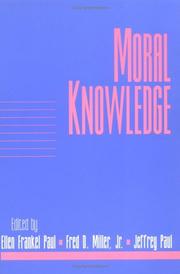
ISBN: 0521006031 0511550138 Year: 2001 Publisher: Cambridge : Cambridge University Press,
Abstract | Keywords | Export | Availability | Bookmark
 Loading...
Loading...Choose an application
- Reference Manager
- EndNote
- RefWorks (Direct export to RefWorks)
Philosophers since ancient times have pondered how we can know whether moral claims are true or false. The first half of the twentieth century witnessed widespread skepticism concerning the possibility of moral knowledge. Indeed, some argued that moral statements lacked cognitive content altogether, because they were not susceptible to empirical verification. The British philosopher A. J. Ayer contends that 'They are pure expressions of feeling and as such do not come under the category of truth and falsehood. They are unverifiable ... because they do not express genuine propositions.' The second half of the twentieth century brought a revival of interest among philosophers in moral and political questions. Whether or not ethics can be founded upon a rational basis continues to preoccupy the philosophical community even now.
Ethics. --- Morale --- Arts and Humanities --- Philosophy --- Deontology --- Ethics, Primitive --- Ethology --- Moral philosophy --- Morality --- Morals --- Philosophy, Moral --- Science, Moral --- Values
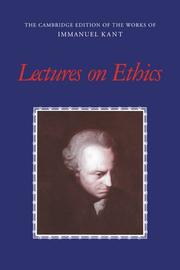
ISBN: 0521560616 0521788048 1107049512 9781107049512 9780521560610 9780521788045 Year: 2001 Volume: *4 Publisher: Cambridge: New York: Cambridge University Press,
Abstract | Keywords | Export | Availability | Bookmark
 Loading...
Loading...Choose an application
- Reference Manager
- EndNote
- RefWorks (Direct export to RefWorks)
This volume contains four versions of the lecture notes taken by Kant's students of his university courses in ethics given regularly over a period of some thirty years. The notes are very complete and expound not only Kant's views on ethics but many of his opinions on life and human nature. Much of this material has never before been translated into English. As with other volumes in the series, there are copious linguistic and explanatory notes and a glossary of key terms.
Ethics --- Ethiek --- Ethique --- Morale --- Deontology --- Ethics, Primitive --- Ethology --- Moral philosophy --- Morality --- Morals --- Philosophy, Moral --- Science, Moral --- Philosophy --- Values --- General ethics --- Ethics. --- Arts and Humanities
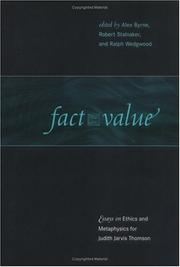
ISBN: 0262024985 0262525623 0262269619 1423729536 9780262269612 9780262525626 9780262024983 Year: 2001 Publisher: Cambridge, Mass. MIT Press
Abstract | Keywords | Export | Availability | Bookmark
 Loading...
Loading...Choose an application
- Reference Manager
- EndNote
- RefWorks (Direct export to RefWorks)
A diverse collection of essays, which reflect the breadth of Judith Jarvis Thomson's philosophical work.The diversity of topics discussed in this book reflects the breadth of Judith Jarvis Thomson's philosophical work. Throughout her long career at MIT, Thomson's straightforward approach and emphasis on problem-solving have shaped philosophy in significant ways. Some of the book's contributions discuss specific moral and political issues such as abortion, self-defense, the rights and obligations of prospective fathers, and political campaign finance. Other contributions concern the foundations of moral theory, focusing on hedonism, virtue ethics, the nature of nonconsequentialism, and the objectivity of moral claims. Finally, contributions in metaphysics and epistemology discuss the existence of sets, the structures reflected in conditional statements, and the commitments of testimony.ContributorsJonathan Bennett, Richard L. Cartwright, Joshua Cohen, N. Ann Davis, Catherine Z. Elgin, Gilbert Harman, Barbara Herman, Frances Myrna Kamm, Claudia Mills, T.M. Scanlon, Ernest Sosa
Ethics. --- Metaphysics. --- Ethics --- Metaphysics --- Philosophy --- Philosophy & Religion --- God --- Ontology --- Philosophy of mind --- Deontology --- Ethics, Primitive --- Ethology --- Moral philosophy --- Morality --- Morals --- Philosophy, Moral --- Science, Moral --- Values --- PHILOSOPHY/General
| Listing 1 - 10 of 72 | << page >> |
Sort by
|

 Search
Search Feedback
Feedback About UniCat
About UniCat  Help
Help News
News